Bergman and his wife and songwriting partner Marilyn wrote songs for ‘The Way We Were’, ‘Yentl’ and many more movies
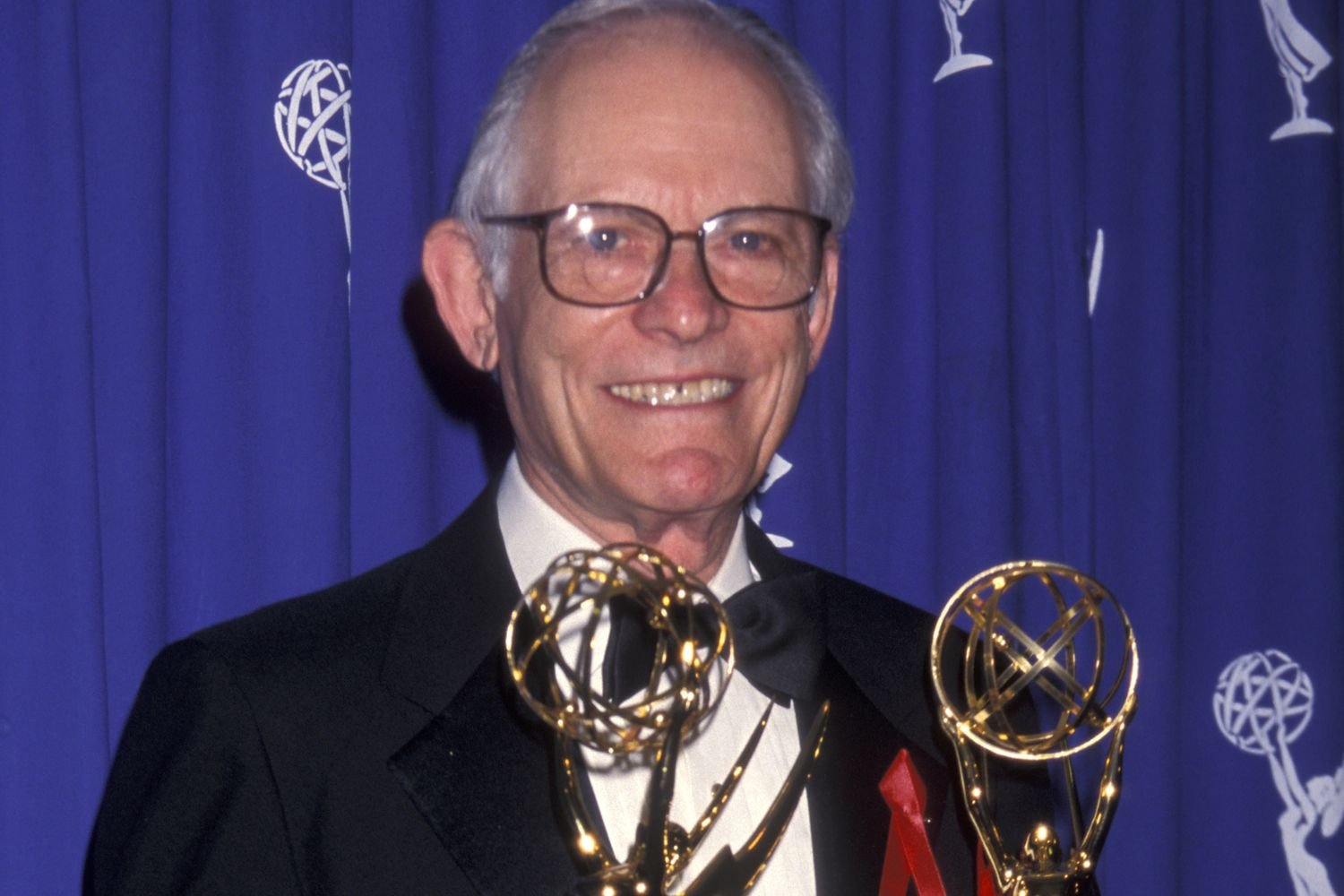
Alan Bergman with his Emmys in 1999.
NEED TO KNOW
-
Famed lyricist Alan Bergman died on July 17 at age 99
-
He was known for his collaborations with wife Marilyn, who died in 2022
-
Bergman “continued to write songs till the very end,” a representative for the star said
Alan Bergman has died at the age of 99. Together with his wife Marilyn, who died in 2022, Alan wrote hundreds of songs, including “The Way We Were” from the film of the same name, “Papa, Can You Hear Me?” from Yentl and the theme song from Good Times. The couple were frequent collaborators with Barbra Streisand and won four Emmys, two Grammys and three Oscars.
He died on Thursday, July 17 at his home in Los Angeles, with daughter Julie Bergman by his side, a spokesperson for the star said in a statement shared with PEOPLE.
“Bergman suffered from respiratory issues in recent months, but continued to write songs till the very end,” the statement read.
Alan was born in Brooklyn, N.Y., in 1925; coincidentally, Marilyn was born in the same hospital and also raised in New York, but their paths wouldn’t cross until they were both adults in California. By age 12, Alan knew he wanted to be a songwriter.
“Musically, if you were Jewish and you lived in Brooklyn, when you were a child, when you were 6 years old you got piano lessons. That was automatic,” he told the Lobero Theatre Foundation in 2014. “I got piano lessons and I loved that, and I’d sit by the radio in those days and listen to the bands.”
At the time, radio was dominated by big bands, and they performed “really great songs” that “molded the opinions of listeners all over the country,” he said. “And I heard them as a kid, and I said, ‘God, that’s wonderful. I have to do that.’ ”
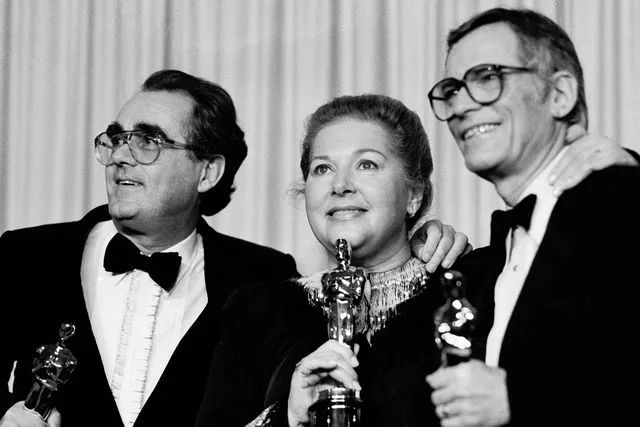
From left: Michael Legrand, Alan Bergman and Marilyn Bergman at the 1984 Oscars.
After graduating from the University of North Carolina, he started studying toward a graduate degree in music at UCLA. But he took a detour into television, where he worked as a director for baseball games and musical shows.
While working for a station in Philadelphia — and still writing songs on the side — he connected with songwriter Johnny Mercer, who urged him to return to Los Angeles to keep pursing songwriting. There, he started collaborating with L.A. composer Lew Spence. Spence had another writer working with him — Marilyn. The three met, and, Marilyn told PEOPLE in 1980, “Before you knew it, the three of us had written a song together.”
After six months of friendship, Alan and Marilyn headed to New York to discuss a Broadway offer. “We turned it down, but Marilyn and I spent a lot of time together in New York,” Alan told PEOPLE in 1980. “When we came back, we were an item.”
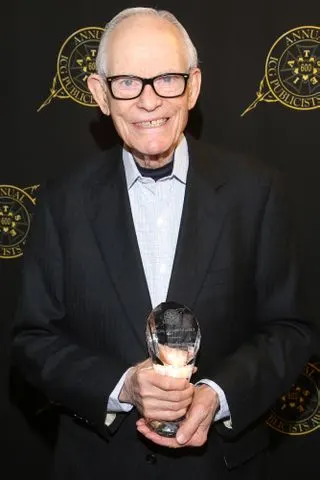
Alan Bergman in 2016.
They wed in 1958 and welcomed daughter Julie in 1960. At age 5, Julie described her parents’ job this way: “Every morning, my mother and father go into a room. Sometimes there’s music playing, and sometimes there isn’t. Most of the time they just sit around, and somebody pays them.”
Early in the couples’ partnership, they wrote children’s songs, unpaid nightclub material and the occasional single. Their first chart success came with the “Yellow Bird” — the Haitian song “Choucoune,” for which they wrote new, English words. They also wrote for Frank Sinatra and Dean Martin and composed the lyrics for the 1964 Broadway flop Something More!.
In 1967, they wrote “In the Heat of the Night” with music by Quincy Jones for the movie of the same name. They worked with French composer Michel Legrand on the song “The Windmills of Your Mind” for 1968’s The Thomas Crown Affair, and the song won them their first Oscar.
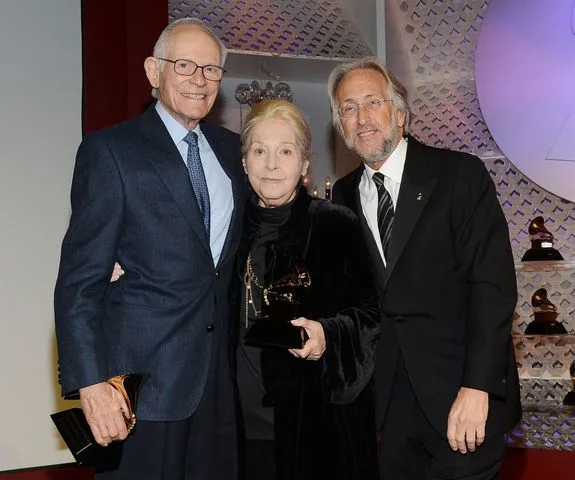
From left: Alan Bergman, Marilyn Bergman and Neil Portnow in 2013 at the Grammys as the couple received the Trustee Award.
They also received Best Original Song Oscar nominations for “What Are You Doing the Rest of Your Life?” from 1969’s The Happy Ending and “Pieces of Dreams” from the 1970 film of the same name.
But their biggest success was “The Way We Were” from the 1973 film of the same name, starring Streisand and Robert Redford. Director Richard Brooks wanted a song that would work at both the start and end of the film. “And he said, ‘I don’t want you to change a note or a word, but I want the song to mean something very different when you hear it the second time,’ ” Alan told NPR in 2007. “So that was a very interesting, challenging assignment.” Not only did the track win them another Oscar, but it also won Song of the Year at the Grammys.
Despite the sad themes of many of their compositions, Alan said in 1980, “Making songs is very enjoyable. There’s not much pain connected with it. When you’re creating something, you sometimes have to go through a lot of stupid or silly things to spark your collaboration. You learn to say what comes into your head.”
Marilyn added, “We’ve had enough experience to know that a compromise is going to be worked out. If one of us feels strongly about something, we’ll let it go for the moment, come back to it the next day and look for a third way to do it.”
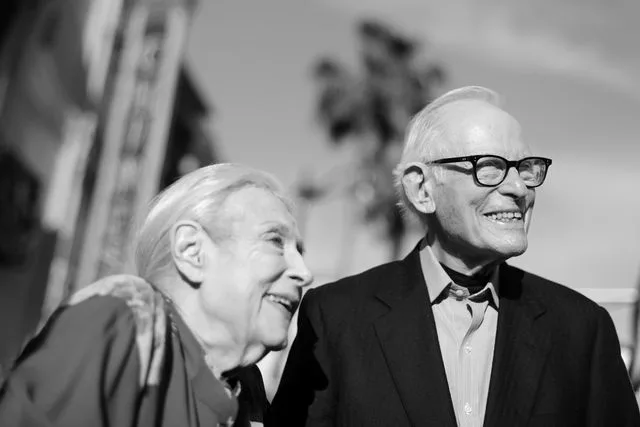
Marilyn and Alan Bergman in 2017.
In 1983, the duo was Oscar-nominated for Best Original Song for three different works from three different films: “How Do You Keep the Music Playing?” from Best Friends, “If We Were In Love” from Yes, Giorgio and “It Might Be You” from Tootsie.
They worked with Streisand again on Yentl, which she also directed. “When we did Yentl, we did a lot of research,” Alan told Tablet Magazine in 2022, and it helped both of them feel more connected to their own Judaism. But they also purposefully worked with Legrand because they wanted the songs to have a popular sound for a broad audience.
With Legrand, they won an Oscar for the film’s score. The songs “Papa, Can You Hear Me?” and “The Way He Makes Me Feel” were also nominated for Best Original Song. In total, they were nominated for Best Original Song 15 times — more than any other writing duo.
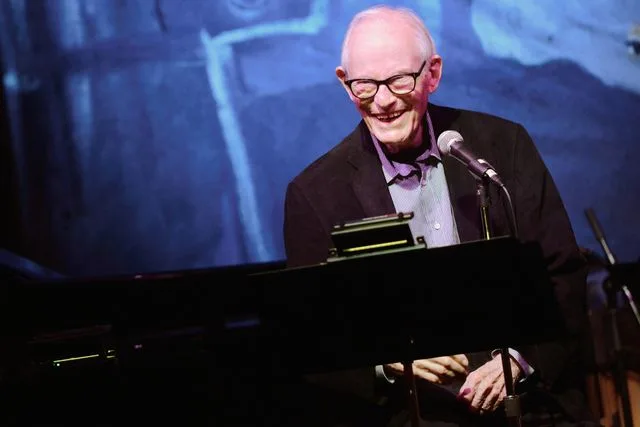
Alan Bergman in 2018.
In 1975, they won an Emmy for the TV musical Queen of the Stardust Ballroom. Their second came in 1977 for the musical Sybil. They wrote the song “Ordinary Miracles” for Streisand’s 1994 TV special, which won them a third Emmy in 1995. They won their final Emmy in 1999 for a song they wrote for AFI’s 100 Years… 100 Movies. In total, they were eight-time Emmy nominees.
They won two Grammys out of 11 nominations and received a Trustee Award in 2013. The couple were inducted into the Songwriters Hall of Fame in 1979. Streisand also released a 2011 album, What Matters Most, in tribute to the duo and featuring only songs they wrote.
The pair also wrote multiple TV theme songs, including the ones for The Sandy Duncan Show, Maude and Good Times. “It was honest,” Alan told PEOPLE in 2023 of the latter show. “It wasn’t a musical-comedy version of this life. It was an honest depiction of the life of Black Christians during that era. Honesty always pays off.”
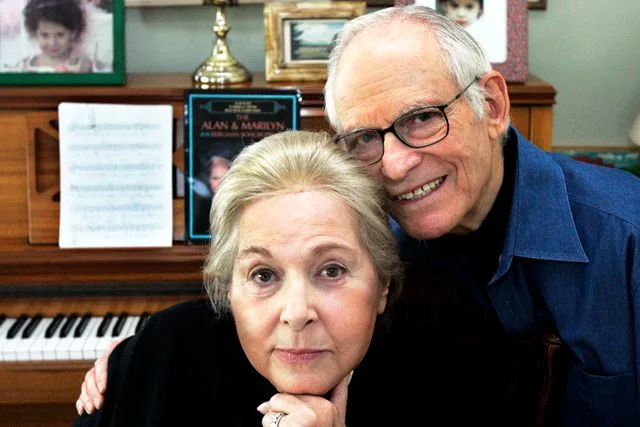
In 2007, Alan released an album, Lyrically, Alan Bergman, of him singing some of the songs he wrote with his wife. He also served as a member of the Library of Congress National Film Preservation Board.
Alan kept writing after his wife’s death. “We always wrote facing each other, never side by side,” he said in an August 2022 interview with Classical Voice. “I would sit on one chair, and she sat about five or six feet away from me. The role of the creator and editor would change within seconds. We would toss ideas back and forth. I can’t do that anymore. I toss them in my head. Luckily, the ideas are still coming.”
He is survived by his daughter Julie Bergman, a writer and film producer, and granddaughter Emily Sender, who just completed her masters in global food studies. There will be a private graveside burial.
